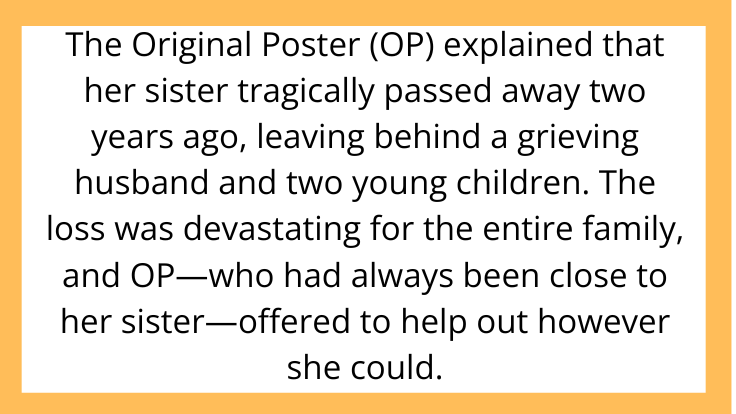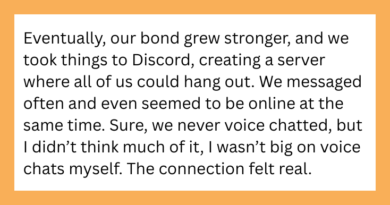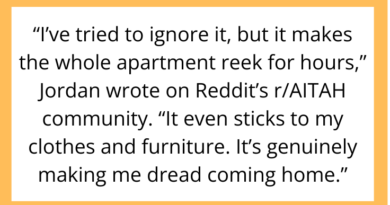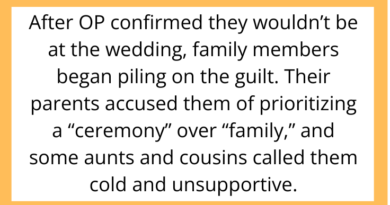Am I the Jerk for Refusing to Let My Sister’s Kids Call Me “Mom”?
Families today come in all shapes and forms, but sometimes, even the most well-meaning attempts at blending or bonding can spark unexpected tensions. That’s exactly what happened when one Reddit user posted in the r/AITAH community about a delicate and deeply personal situation involving her late sister’s children, her brother-in-law, and a request that struck a nerve.
What began as a gesture of compassion turned into a question of identity, boundaries, and emotional responsibility. Is stepping up to care for someone else’s kids the same as becoming their parent? And where should the line be drawn when grief and expectations collide?
The Situation: A Sister’s Tragic Passing Leaves Two Children Without a Mother

The Original Poster (OP) explained that her sister tragically passed away two years ago, leaving behind a grieving husband and two young children. The loss was devastating for the entire family, and OP—who had always been close to her sister—offered to help out however she could.
Over time, that help turned into something much more consistent. OP began picking the kids up from school, helping with homework, babysitting on weekends, and even hosting holidays. She became a constant presence in their lives. But she never tried to replace her sister. She was just being a supportive aunt.
That’s why she was shocked when, during a recent family gathering, her brother-in-law asked if the children could start calling her “Mom.” He said it would help them adjust and bring comfort, and he praised OP for stepping up in such a meaningful way.
But OP declined—and that’s when things turned tense.
Boundaries vs. Love: Can You Care Deeply Without Taking on the Title?
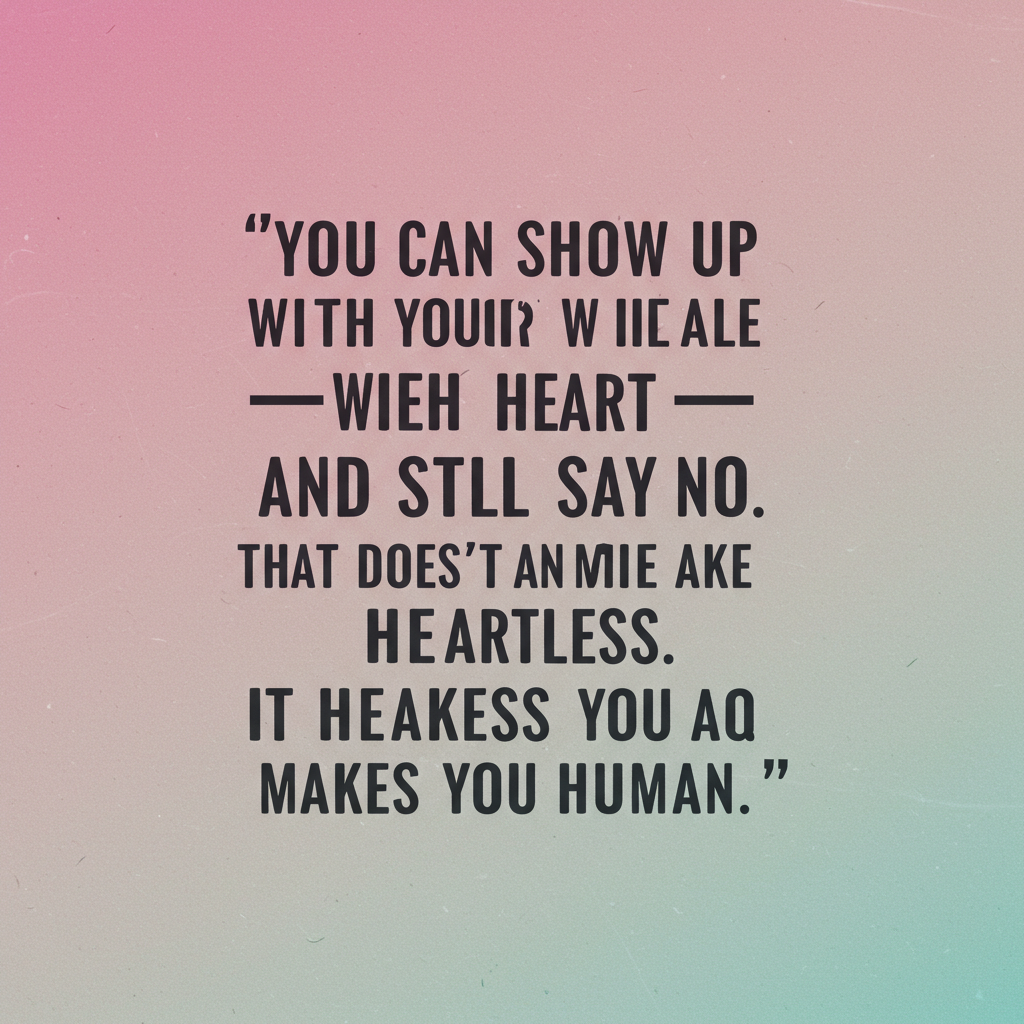
Why OP Said No
OP was clear in her explanation: she loved her niece and nephew deeply, but she wasn’t their mother. That title belonged to her sister, and she didn’t feel right taking it on—even symbolically. She felt it would dishonor her sister’s memory and confuse the children in the long run.
She also shared that she wasn’t looking to adopt or co-parent. Her involvement came from love, but it had clear boundaries. Being an aunt and a support system was something she was proud of. But “Mom” wasn’t a title she felt comfortable assuming.
The Brother-in-Law’s Reaction
Unfortunately, her brother-in-law didn’t take it well. He accused her of being cold and ungrateful, saying that if she didn’t want the role, she shouldn’t be so involved. He argued that the kids were already referring to her as a mother figure in school and therapy, and that rejecting the title was harmful to their emotional healing.
He also implied that refusing the request was a form of abandonment—and that hit OP hard.
Navigating Grief and Titles: What’s in a Name?
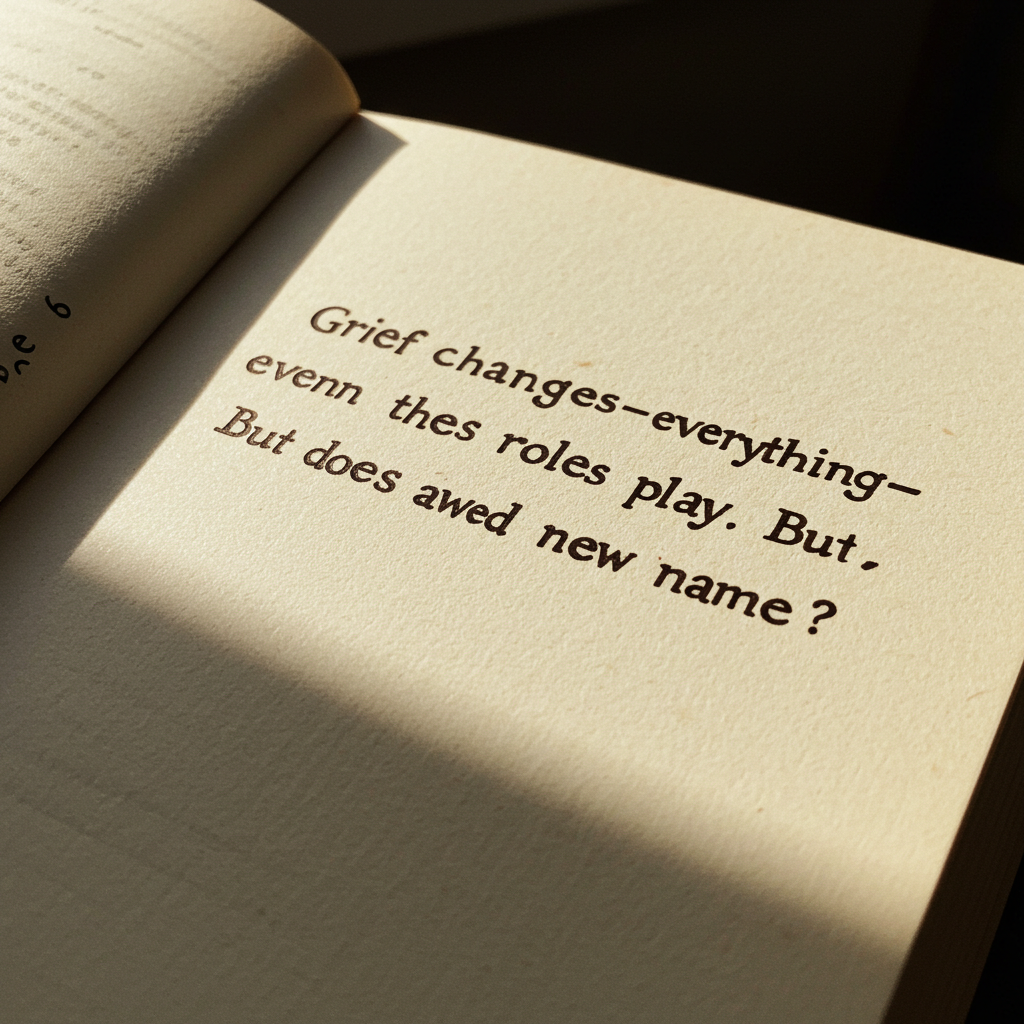
When Grief Shifts Expectations
One of the recurring themes in this AITAH post was how grief can reshape expectations and relationships. In the eyes of the brother-in-law, OP had become a mother figure—and therefore should accept the title. But in OP’s eyes, love and consistency didn’t have to come with that label.
It’s a complicated intersection of roles. Grieving families often look for stability and identity, and names like “Mom” can carry emotional weight. But those titles also mean different things to different people—and forcing them can backfire.
Respecting the Memory of the Deceased
Many commenters pointed out something important: by saying no, OP was actually protecting her sister’s legacy. She wasn’t trying to erase or replace her—she was honoring her by keeping her memory and role distinct.
For some families, redefining roles after loss is healing. For others, it feels like betrayal. The right path depends entirely on what brings comfort—not just to the children, but to the caretakers too.
The AITAH Community Weighs In
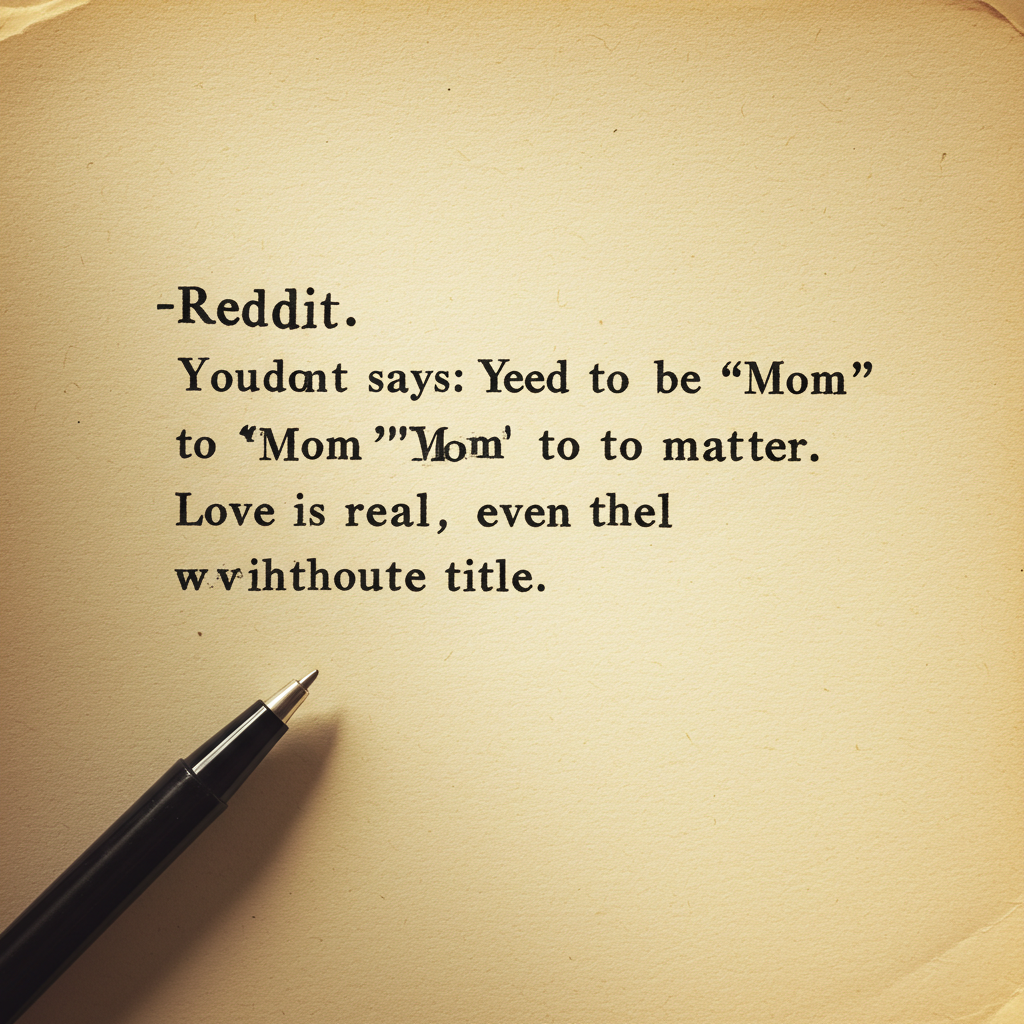
Reddit’s responses were overwhelmingly supportive of OP’s decision. Most agreed she wasn’t the jerk and that no one should be forced into a parental role, no matter how much they’re doing.
Here are a few standout takes from the thread:
“Titles like ‘Mom’ are earned, accepted, and meaningful. Not assigned like job roles.”
“She’s already giving so much. Emotionally pressuring her into being more than she signed up for is unfair.”
“There’s nothing wrong with being the amazing aunt who stepped up without stepping over boundaries.”
Some users also pointed out the emotional implications for the children. Forcing them to call someone else “Mom” might create confusion, especially if they still remember and grieve their real mother.
Final Thoughts: Love Without Labels Is Still Love

This story strikes at the heart of what it means to show up for family. OP did what so many people wouldn’t—she gave her time, love, and energy to help raise her late sister’s kids. And she did so while trying to honor her sister’s role, not replace it.
Just because someone chooses not to take on a title doesn’t mean they’re any less committed. Boundaries don’t equal rejection—and love can be powerful without the label of “Mom.”
In the end, OP wasn’t the villain for saying no. She was honest, thoughtful, and protective of both the children and her sister’s legacy. And the AITAH community made it clear: respect for boundaries is just as important as emotional support.
